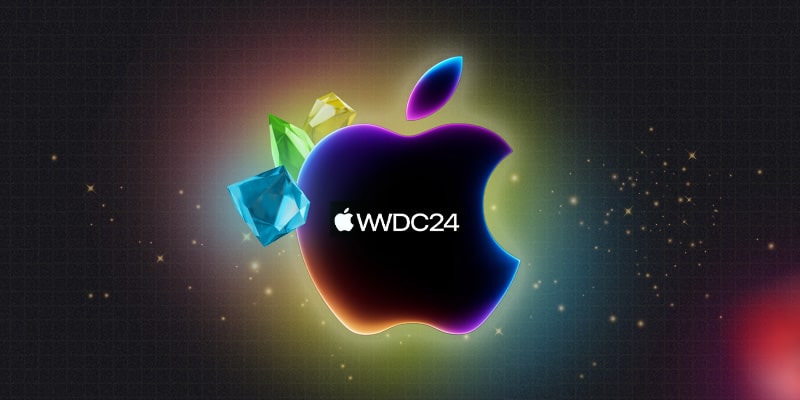Moburst’s Monthly Mobile Marketing Roundup #14

Welcome back to the 14th edition of Moburst’s Monthly Mobile Marketing Roundup!
This month, we’ll explore the latest updates about TikTok’s new photo app, provide you with guidance on complying with Apple’s privacy regulations, and delve into leveraging Meta AI advancements—plus a host of other valuable insights.
Let’s dive right in.
Mobile News
What’s Behind TikTok’s New Photo-Sharing App?
TikTok’s new photo-sharing app, “TikTok Notes,” is the company’s latest venture into expanding its digital ecosystem to compete more directly with Instagram. While there’s no official global release date announced for the app, it is currently being tested in limited markets such as Canada and Australia.
“TikTok Notes” is designed to leverage TikTok’s massive user base and integrate features that are familiar to its users, such as vertical scrolling feeds and a mix of photo and text posts. The layout includes a two-column feed where photos of varying sizes are displayed, similar to Pinterest’s style.

This new approach aims to attract users who are interested in sharing more static content in addition to the dynamic short videos TikTok is known for.
The introduction of “TikTok Notes” also includes features like headings for posts and enhanced controls over comment visibility, suggesting that the platform is experimenting with different ways to engage users and enrich the content-sharing experience.
This move could potentially influence mobile marketing strategies, ad revenues, and user retention rates, offering a fresh playground for brands, marketers, UGC creators and influencers alike. That could mean repurposing content from Instagram or LinkedIn, for example, depending on your brand’s goals.
Want to Stay Ahead of the Latest Mobile Updates?
Our marketing experts are here to help you achieve success!
Meta AI Enhances with Llama 3
Meta AI’s recent integration of their open-source LLM, Llama 3 into platforms like Instagram, Facebook, WhatsApp, and Messenger is going to be a big step forward for AI-powered applications.
This new layer of intelligence weaved into the apps will enhance their helpfulness, intuitiveness, and responsiveness to users’ day-to-day needs—but it also opens up numerous opportunities for brands and developers currently utilizing or looking to leverage AI in their mobile apps.
Here’s how you can utilize Llama 3 for your business:
- Natural Language Interfaces: You can leverage Llama 3 to create sophisticated chatbots and virtual assistants within an app. These AI-driven interfaces can understand and generate human-like text, enabling them to handle user inquiries, provide support, and offer personalized recommendations, enhancing the overall user experience.
- Content Personalization: Llama 3 can analyze user data and preferences to tailor content that appears in-app, such as news feeds, product recommendations, or even push notifications. This personalization can improve user engagement by making your app feel more relevant to individual users.

- Accessibility Features: By utilizing Llama 3’s language translation capabilities, apps can become more accessible to a global audience. Additionally, its ability to parse and understand complex text can be used to simplify and summarize content for users with different reading abilities or preferences.
- User Behavior Insights: Llama 3 can process large volumes of user interaction data to provide insights into how users engage with your app. These insights can inform UI/UX decisions, leading to design improvements that better cater to user needs.
- Automated Testing of User Interfaces: AI can be used to simulate user interactions and test various aspects of the UI/UX for issues before releasing your app. This can help identify navigational difficulties, confusing interfaces, or accessibility barriers.
App Store Updates
Apple’s Privacy Requirement for App Submissions Go Live
Apple has announced updated privacy requirements for app submissions, effective May 1, 2024. These changes are crucial for maintaining user trust and enhancing security across apps available on the App Store.
Starting May, any new or updated apps that include newly added third-party SDKs from a list of commonly used SDKs must comply with the following:
- Reasons for API Use: Developers must provide clear reasons for each API included in their apps. This requirement is aimed at increasing transparency regarding how apps use permissions and data.
- Privacy Manifests: Apps must include a privacy manifest for each third-party SDK added. This manifest should detail the data access and usage by the SDK.
- Valid Signatures: All third-party SDKs added as binary dependencies must have valid signatures. This helps ensure the authenticity and integrity of the code used in apps.

To ensure your app meets these new guidelines, consider the following steps:
- Review and Document SDK Usage: Audit all third-party SDKs your app uses. Document their purposes and ensure you have valid reasons for the APIs they access. This will be crucial for compliance and for future updates to your app.
- Implement Privacy Manifests: Develop and implement privacy manifests for each third-party SDK. These should clearly outline how the SDKs are used and what data they access. Guidance on privacy manifest structure can be found in Apple’s developer documentation.
- Verify SDK Signatures: Ensure that all binary dependencies are correctly signed. This might involve coordinating with SDK providers to obtain or verify signatures.
- Regularly Update and Review Compliance: Given that these requirements will soon expand to cover all app binaries, it’s wise to start reviewing your entire app’s compliance, not just the new or updated parts. Regularly update your compliance practices to stay ahead of future regulations.
Looking ahead, Apple mentions that these privacy and security requirements will grow to cover more aspects of app development. This aligns with a wider industry shift towards increased transparency and giving users more control over their privacy.
Looking to Optimize Your App for the Latest Privacy Updates?
Our team of mobile marketing experts will do the hard work for you!
iOS 17.5 Allows EU Users Download Apps From Websites
As of the recently released iOS 17.5 update, Apple is introducing a significant change for users in the European Union—allowing them to download apps directly from developers’ websites.
This new capability complies with the Digital Markets Act (DMA) and aims to provide more flexibility in how users obtain applications. Here’s a breakdown of the key points and actionable insights:
- Direct Downloads: EU users can now download apps from websites, bypassing the App Store. This is a major shift from Apple’s previous policy and provides users and developers with an alternative distribution channel.
- Eligibility Criteria: Developers wishing to offer direct downloads must meet specific requirements, including a two-year membership in the Apple Developer Program and a significant presence in the EU market (over one million first installs).
- Security and Compliance: Submitted apps must undergo Apple’s notarization process to ensure safety and integrity, and developers must publish clear data collection policies.
Allowing third-party downloads for your app opens up potential for reaching users who might prefer non-App Store download options, possibly expanding your app’s user base within the EU.
So, if you’re planning on offering additional download options for your app, make sure to adjust your marketing strategies to highlight the availability of direct downloads and educate users on the benefits of using this new option.
Google Play Store Updates
Google Play Monetization API Changes
By May 2024, if you’re using Google Play’s Developer API for your app, you’ll need to switch over to the new monetization.subscriptions APIs. This update simplifies how you manage app subscriptions, giving you better flexibility.

The new APIs provide more granular control over subscription details, allowing you to manage multiple base plans and promotional offers, which could include discounts for new subscribers or special pricing for loyal customers.
Google Rolls out Gemini in Android Studio
The latest updates to Android Studio bring exciting advancements for app developers with the introduction of Gemini Pro, an AI-powered coding assistant now incorporated into Android Studio’s environment. This update is part of the new stable release of Android Studio Jellyfish, which aims to streamline the development process and improve the overall coding experience.

Gemini Pro, originally known as Studio Bot, will now offer features that assist developers in various coding tasks, from generating code snippets to providing in-depth code completions and debugging assistance. Its capabilities are rooted in the advanced Gemini Pro model which has shown significant improvements in response quality during Google’s internal testing.
For app owners and developers, the integration of Gemini means not only faster coding but also more efficient problem-solving and debugging, which can significantly reduce development costs and time-to-market for new applications.
These updates position Android Studio with Gemini Pro as a strong competitor in the market, aiming to rival other coding assistants like GitHub Copilot by enhancing the coding experience with powerful AI assistance.
Ready to take your marketing strategy to the next level and stay ahead of industry trends? Look no further than Moburst!
As a leading full-service, mobile-first digital marketing agency, we specialize in helping businesses like yours grow and become category leaders.
Ready to Achieve Hypergrowth?
Our team is here to help!








